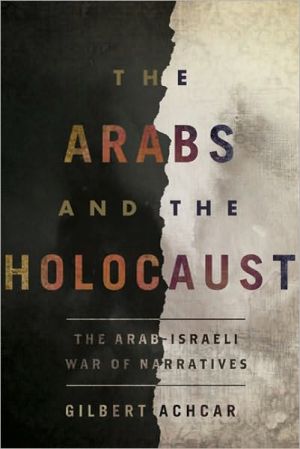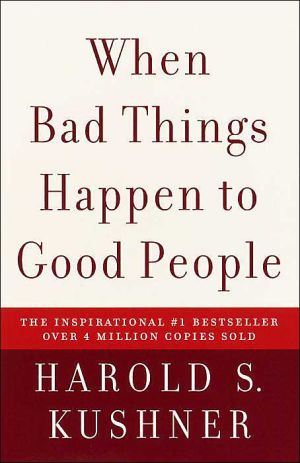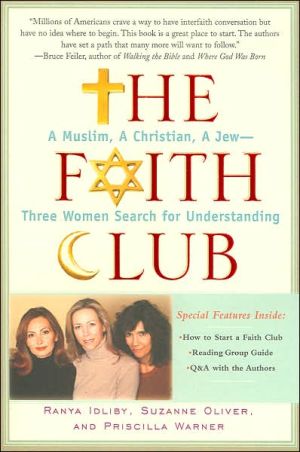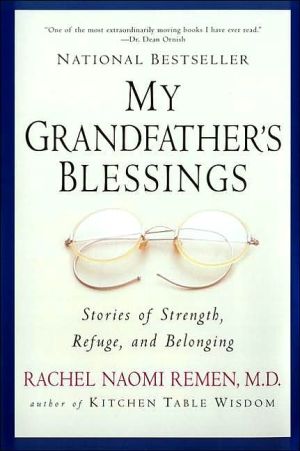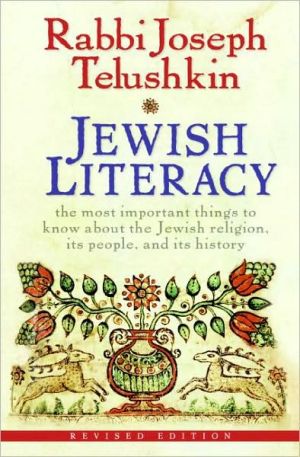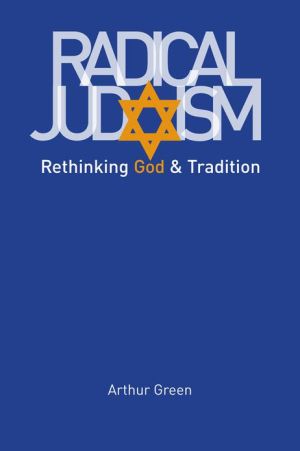The Arabs and the Holocaust
An unprecedented and judicious examination of what the Holocaust means—and doesn't mean—in the Arab world, one of the most explosive subjects of our time\ There is no more inflammatory topic than the Arabs and the Holocaust—the phrase alone can occasion outrage. The terrain is dense with ugly claims and counterclaims: one side is charged with Holocaust denial, the other with exploiting a tragedy while denying the tragedies of others.\ In this pathbreaking book, political scientist Gilbert...
Search in google:
An unprecedented and judicious examination of what the Holocaust means—and doesn't mean—in the Arab world, one of the most explosive subjects of our timeThere is no more inflammatory topic than the Arabs and the Holocaust—the phrase alone can occasion outrage. The terrain is dense with ugly claims and counterclaims: one side is charged with Holocaust denial, the other with exploiting a tragedy while denying the tragedies of others. In this pathbreaking book, political scientist Gilbert Achcar explores these conflicting narratives and considers their role in today's Middle East dispute. He analyzes the various Arab responses to Nazism, from the earliest intimations of the genocide, through the creation of Israel and the destruction of Palestine and up to our own time, critically assessing the political and historical context for these responses. Finally, he challenges distortions of the historical record, while making no concessions to anti-Semitism or Holocaust denial. Valid criticism of the other, Achcar insists, must go hand in hand with criticism of oneself.Drawing on previously unseen sources in multiple languages, Achcar offers a unique mapping of the Arab world, in the process defusing an international propaganda war that has become a major stumbling block in the path of Arab-Western understanding. Kirkus Reviews A scholarly reappraisal of the diverse Arab responses to the Holocaust and Zionism. In the wake of recent scandalous proclamations by Holocaust deniers, Beirut-born historian Achcar (Development Studies and International Relations/School of Oriental and African Studies, London; The Clash of Barbarisms: The Making of the New World Disorder, 2006, etc.) is distressed by the evidence of Arab "intellectual regression." Examining the archives-he takes English-language "experts" to task for not learning Arabic-from the rise of Nazism in the early 1930s through the eras of Nasser, the PLO and the present-day efflorescence of Islamic fundamentalism, the author emphasizes that the Arab response has involved an enormously convoluted "symbolic tit for tat" over the centuries, stating, in effect, that the Jewish people are not the only victims, and refusing to be saddled with the responsibility for what was in fact a Christian evil. Achcar repeatedly stresses that "the Arabs" do not act in unison, but are diverse peoples, and as such there is no single response. In terms of the reaction to the Zionist incursions in Palestine and increased immigration during the '30s and '40s, he carefully distinguishes among four groups of Arabs: the liberal Westerners, the Marxists, the nationalists and the reactionary/fundamentalist Pan-Islamists. Achcar acknowledges the bad apples over the decades-e.g., the pro-Nazi Baath Party and Amin al-Husseini, aka the Grand Mufti of Jerusalem-while much of this record continues to play into "the stock themes of Israeli propaganda" by the Zionist state. At times the author scrambles to portray the Arab reaction in a favorable light, but he does a fine service pointing out holes in previous research. Moreover, he never loses sight of the irony that Israel is widely regarded as a racist state. A spirited defense and a plea to both Arabs and Jews, "motivated by the same humanism yet situated on opposite sides of the wall of hatred."
Arabs and the Holocaust\ PART I\ THE TIME OF THE SHOAH\ Arab Reactions to Nazism and Anti-Semitism, 1933-47\ Prelude\ It ought to be a truism that "the Arabs" do not exist—at least not as a homogeneous political or ideological subject. Yet such use of a general category known as "the Arabs" is common in both journalism and the specialist literature. "The Arabs" are supposed to think and act or react in unison. Of course, like "the Jews" or "the Muslims," "the Arabs" as a politically and intellectually uniform group exist only in fantasy, engendered by the distorting prism of either ordinary racism or polemical fanaticism.\ Like any large, diverse group, the Arab population is crisscrossed by different ideological currents that have been shaped by varied forms of education and political experience in different countries, a circumstance no well-informed work on political thought in the Arab world fails to point out. Only a perception distorted by "Orientalism," in the pejorative sense of the term made famous by Edward Said—that is the cultural essentialization of the peoples of the East that reduces them to a stereotyped immutable being or "mind"1—can obscure the very deep divisions in the Arab world.\ The diversity of the Arabs' historical relations to Nazism and Zionism is no less pronounced. There have even been a few Arab allies of the Zionist movement: recall the Palestinian "collaboration"2 and the unacknowledged "collusion" of leaders who had ties to the British, such as King Abdullah of Jordan,3 or allies motivated by the idea of making common cause with the Zionists as "enemies of their enemies," notably some Christian Maronites in Lebanon.4\ In the Arab anticolonial independence movement, whose opposition to the Zionist project in Palestine reflected what was by far the dominant Arab attitude in the 1930s and 1940s, we may distinguish four basic ideological currents:\ 1. The liberal Westernizers\ 2. The Marxists\ 3. The nationalists\ 4. The reactionary and/or fundamentalist Pan-Islamists\ Note that none of these currents has a monopoly on the central value inspiring it. Thus there is widespread adhesion to Islam among liberal Westernizers and nationalists. Nationalism, moderate or radical, animates Westernist liberal advocates of independence and, in a specifically religious form, Pan-Islamists as well. Similarly, it can be argued that both Marxists and most nationalists are Westernizers who even, at times, embrace the same liberal values.\ Moreover, each current comprises several distinct variants, and there are a number of intermediate and combined categories. Regarding nationalism in particular, we may distinguish a right wing that often works in close alliance with Islamic fundamentalism, a left wing influenced by Marxism, and a liberal version.5 On certain questions, the positions of these subgroups can differ sharply.\ Nevertheless, a qualitative difference sets each of the four major categories apart: the nature of its guiding principle, its determinant system of political values. Each chooses its political positions with reference, first and foremost, to a distinctive political and ideological system of thought—liberalism, Marxism, nationalism, or Islam conceived as a source of political inspiration adapted to contemporary conditions.\ Copyright © 2009 by Gilbert Achcar
Introduction Words laden with pain 51 The liberal Westernizers 352 The Marxists 513 The nationalists 644 Reactionary and/or fundamentalist pan-Islamists 1045 The Nasser years (1948-67) 1926 The PLO years (1967-88) 2217 The years of the Islamic Resistances (1988 to the present) 244Conclusion Stigmas and stigmatization 273Acknowledgments 297Notes 299Bibliography 343Index 359
\ From the Publisher“A sensitive and insightful exploration of an important dimension of the Middle East conflict—one that we usually only encounter in angry sound bites. Gilbert Achcar’s book, which combines meticulous scholarship and an engaging style, is a significant contribution to the mutual understanding that is in such short supply.”\ —Peter Novick, author of The Holocaust in American Life\ \ “In this study Gilbert Achcar exposes a great deal of spurious scholarship on the subject and places Arab attitudes towards the Holocaust and the Jews in their proper historical and intellectual context. It is an erudite, perceptive, and highly original study that shines much-needed light on a field which has tended to be dominated by partisanship and propaganda.”\ —Avi Shlaim, author of The Iron Wall: Israel and the Arab World\ \ “Essential reading for anyone who seeks a balanced understanding of the place of Jews and the Holocaust in Arab thinking today. Whether or not one agrees with Gilbert Achcar on every issue, he provides a welcome and well-informed counterpoint to caricaturists and hate-mongers and fear-promoters of every persuasion. His is a voice of moderation in a bitter conflict, and it is all the more valuable for being steeped in the history and idiom of the Arab Middle East.”\ —Michael R. Marrus, author of The Holocaust in History\ \ “This is a work of breath-taking empathy, examining one of the most painful and emotion-laden topics in the modern world with dispassion, sensitivity and high erudition. Gilbert Achcar combines a historian’s profound understanding of the workings of Arab political discourse with a fine appreciation of the traumatic valence of every aspect of this topic. This magisterial study constitutes a welcome advance on the often meretricious and mediocre scholarship produced thus far on the important topic of the Arabs and the Holocaust.”\ —Rashid Khalidi, author of The Iron Cage: The Story of the Palestinian Struggle for Statehood\ \ “The Arabs and the Holocaust is a penetrating analysis of the multiplicity of attitudes and responses in the Arabic-speaking world toward Nazism, anti-Semitism, and the Holocaust. The book effectively disproves simplistic notions of a single, monolithic, Holocaust-denying Arabic-speaking world driven by racist and neo-Nazi hatred of all Jews, and effectively demonstrates that there never has been one ‘Arab’ narrative on the Holocaust.”\ —Francis R. Nicosia, author of Zionism and Anti-Semitism in Nazi Germany\ \ “Gilbert Achcar’s thoughtful, well researched, and very welcome assessment of one of the most explosive topics of Palestinian/Israeli historiography is a courageous undertaking. He succeeds in treating the subject of the relationship of Palestine and the Nazi Holocaust with original thinking, profound scholarship, and meticulous analysis.”\ —Naseer Aruri, member of the Palestine National Council and author of Palestine and Palestinians: A Social and Political History\ \ “In a field fraught with bad faith and sheer propaganda, Gilbert Achcar’s book stands out as scholarly, even-handed, and decent.”\ —Idith Zertal, author of Israel’s Holocaust and the Politics of Nationhood\ \ \ \ \ \ \ Kirkus ReviewsA scholarly reappraisal of the diverse Arab responses to the Holocaust and Zionism. In the wake of recent scandalous proclamations by Holocaust deniers, Beirut-born historian Achcar (Development Studies and International Relations/School of Oriental and African Studies, London; The Clash of Barbarisms: The Making of the New World Disorder, 2006, etc.) is distressed by the evidence of Arab "intellectual regression." Examining the archives-he takes English-language "experts" to task for not learning Arabic-from the rise of Nazism in the early 1930s through the eras of Nasser, the PLO and the present-day efflorescence of Islamic fundamentalism, the author emphasizes that the Arab response has involved an enormously convoluted "symbolic tit for tat" over the centuries, stating, in effect, that the Jewish people are not the only victims, and refusing to be saddled with the responsibility for what was in fact a Christian evil. Achcar repeatedly stresses that "the Arabs" do not act in unison, but are diverse peoples, and as such there is no single response. In terms of the reaction to the Zionist incursions in Palestine and increased immigration during the '30s and '40s, he carefully distinguishes among four groups of Arabs: the liberal Westerners, the Marxists, the nationalists and the reactionary/fundamentalist Pan-Islamists. Achcar acknowledges the bad apples over the decades-e.g., the pro-Nazi Baath Party and Amin al-Husseini, aka the Grand Mufti of Jerusalem-while much of this record continues to play into "the stock themes of Israeli propaganda" by the Zionist state. At times the author scrambles to portray the Arab reaction in a favorable light, but he does a fine service pointing out holes in previous research. Moreover, he never loses sight of the irony that Israel is widely regarded as a racist state. A spirited defense and a plea to both Arabs and Jews, "motivated by the same humanism yet situated on opposite sides of the wall of hatred."\ \
